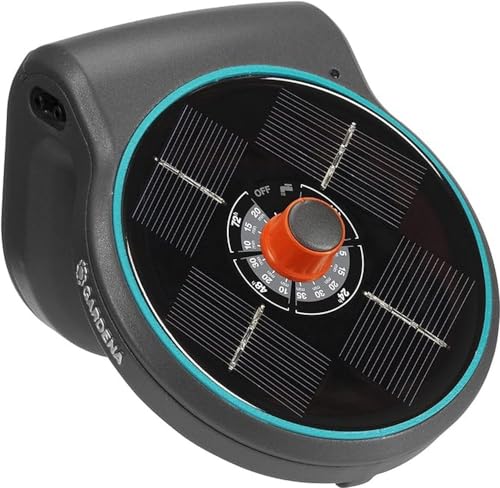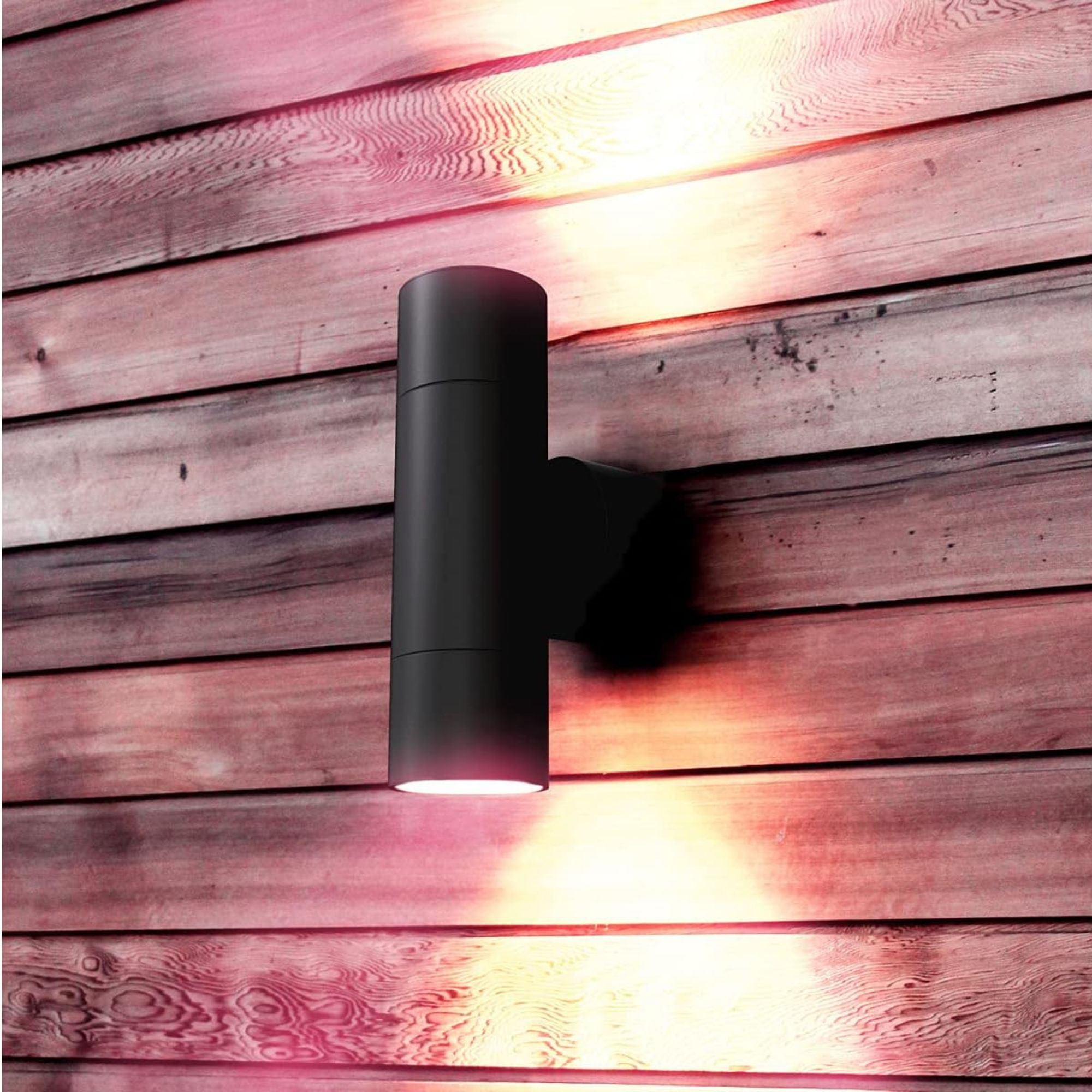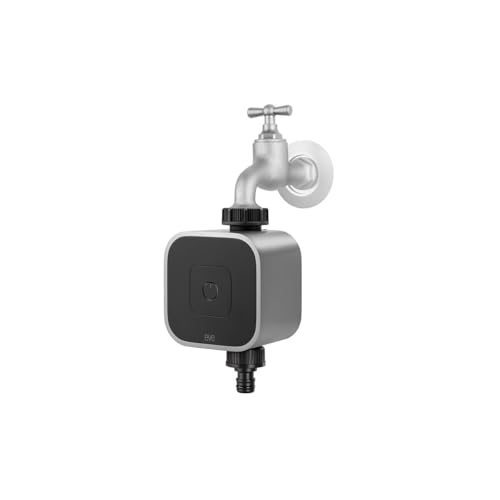11 garden trends predicted to rule the gardening world this year, from weather-resilient gardens to heirloom vegetables
We checked in with gardening experts to get ready for 2025's biggest garden trends

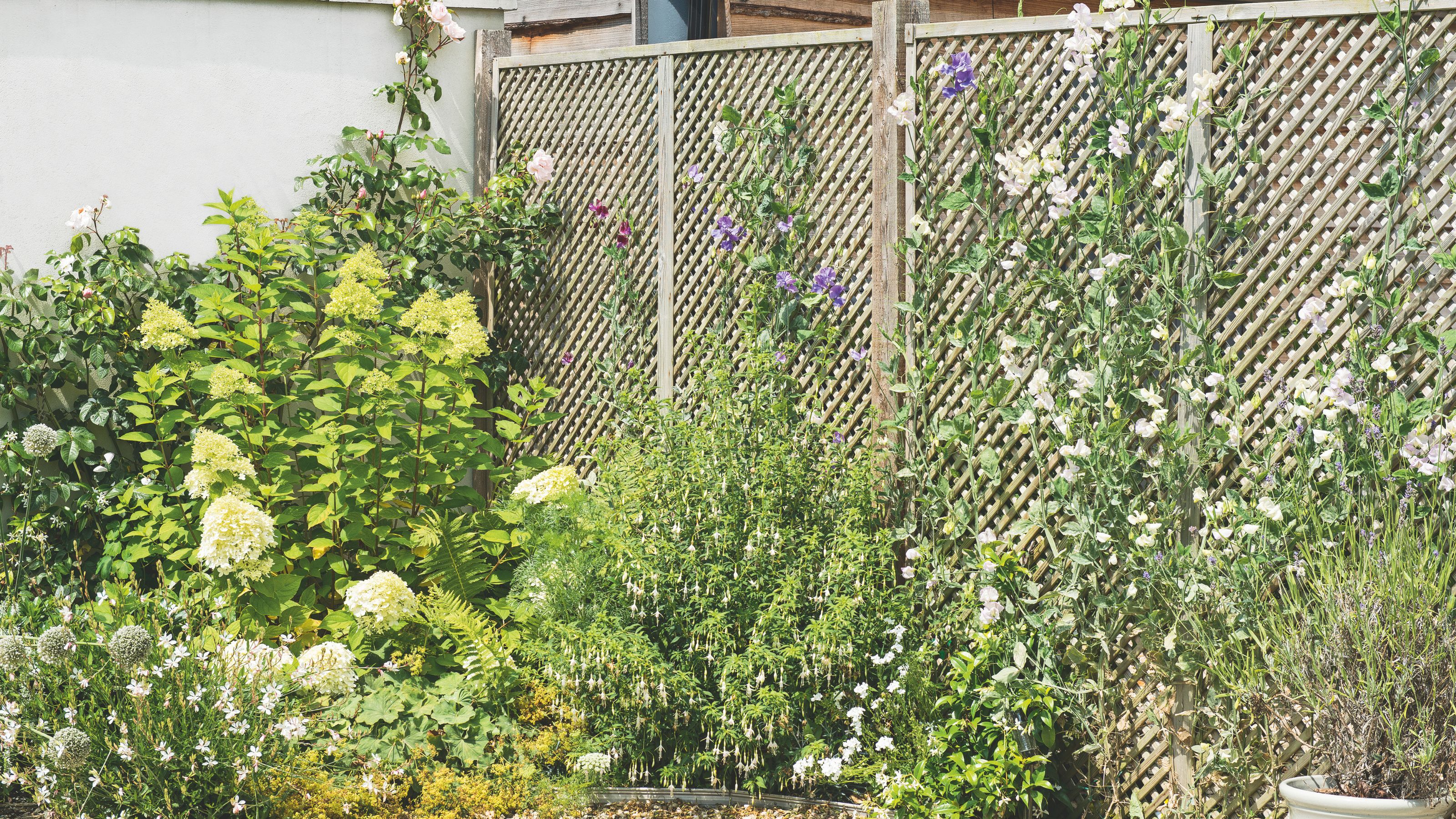
Sign up to our newsletter for style inspiration, real homes, project and garden advice and shopping know-how
You are now subscribed
Your newsletter sign-up was successful
It's 2025, which means we have a brand-new year of garden trends to look forward to. But which trends are set to be the biggest?
Whether you're looking for small garden ideas or a fresh round of landscaping ideas, the majority of this year's predicted trends can be applied to any outdoor space. There's a focus on rare and unusual vegetables, climate-forward thinking, and whimsical cottagecore planting.
We've rounded up 11 garden trends, predicted by garden experts, that we're most excited about for 2025.
Garden trends 2025
It's set to be a year of romantic planting schemes and quirky vegetables, but sustainable gardening is predicted to headline this year's garden trends.
'2025 garden trends consider both function and lifestyle whilst combining sustainable practice,' says Sam Stevens, gardening expert at Pergolux UK. 'Sustainability is at the heart of a lot of homeowners' decisions due to climate issues.'
These are the 2025 garden trends to add to your radar.
1. Climate-forward thinking
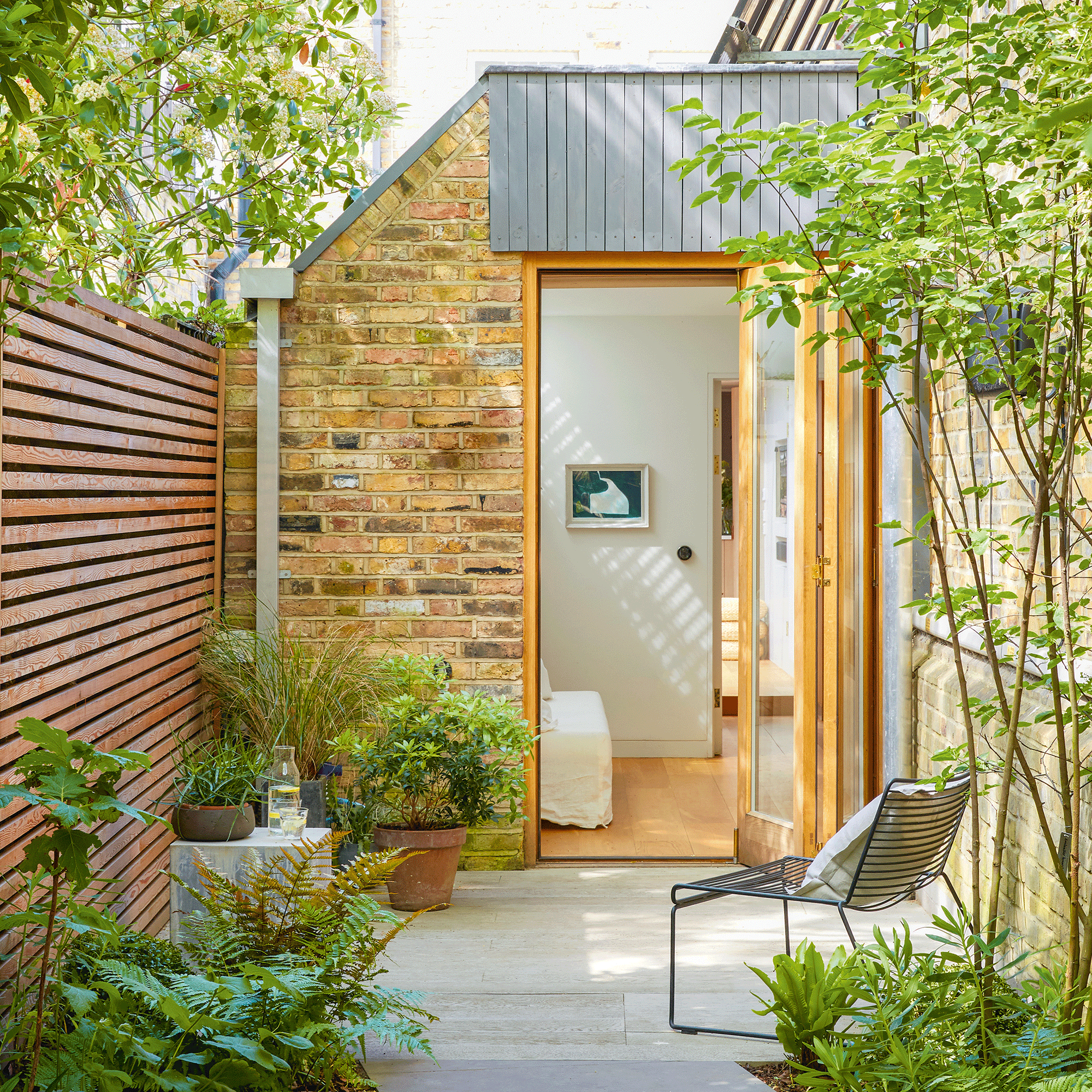
Climate-forward approaches to gardening are set to lead 2025's garden trends. We've seen the focus on sustainability and rewilding grow by the year this decade, and that mode of thinking is predicted to rise this year.
Sign up to our newsletter for style inspiration, real homes, project and garden advice and shopping know-how
‘Climate forward gardening is a direct reaction to the false dopamine of screens and social media,’ says Melanie Hick, award-winning garden designer and director of MHGD. 'No longer a maverick idea, adding wilder plants, increasing habitats and addressing climate issues like water storage will become the norm.'
It's the perfect time to start brainstorming eco-friendly garden ideas, from rainwater harvesting to selecting the best plants for bees.
British Garden Centres also predicts a larger focus on sustainability this year. 'As the year begins, concerns about the environment and sustainability remain high on everyone’s agendas,' says Julian Palphramand, British Garden Centres' head of plants. 'There has been an increase in natural and environmentally sensitive feeds, weed controls, and pest management products.'

Melanie Hick is a Melbourne-born, London-based bespoke garden designer specialising in creating beautiful spaces with sustainability and climate consideration built into every layer of their creation.
2. Weather resilience
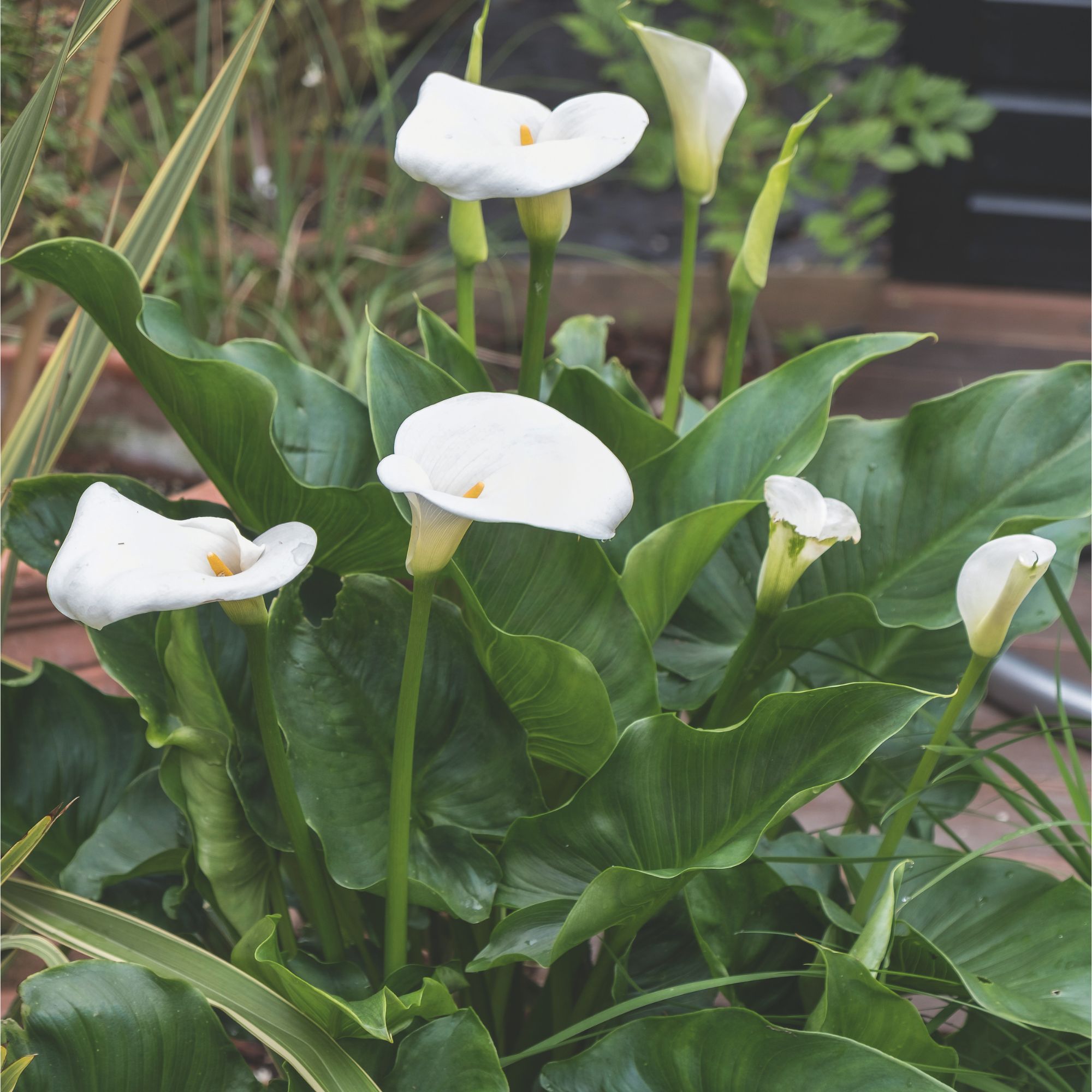
One of the main elements of climate-forward gardening is selecting plants which are suited to our ever-changing environment.
Drought-tolerant planting was one of the most popular garden trends last year, featuring in several RHS Chelsea Flower Show 2024 gardens. This year, the trend is set to take off again, and so is its foil, flood-resilient gardening.
'After the unpredictable weather from this past year, we’re expected to see a rise in weather-resilient gardens,' says Sam Stevens, gardening expert at Pergolux UK. 'There will be a particular focus on creating a flood-resilient garden with hardy plants and good drainage.'
So, think about filling your garden with flood-proof plants this year, and look at ways to flood-proof your garden ahead of any torrential downpours.
3. Forest gardening
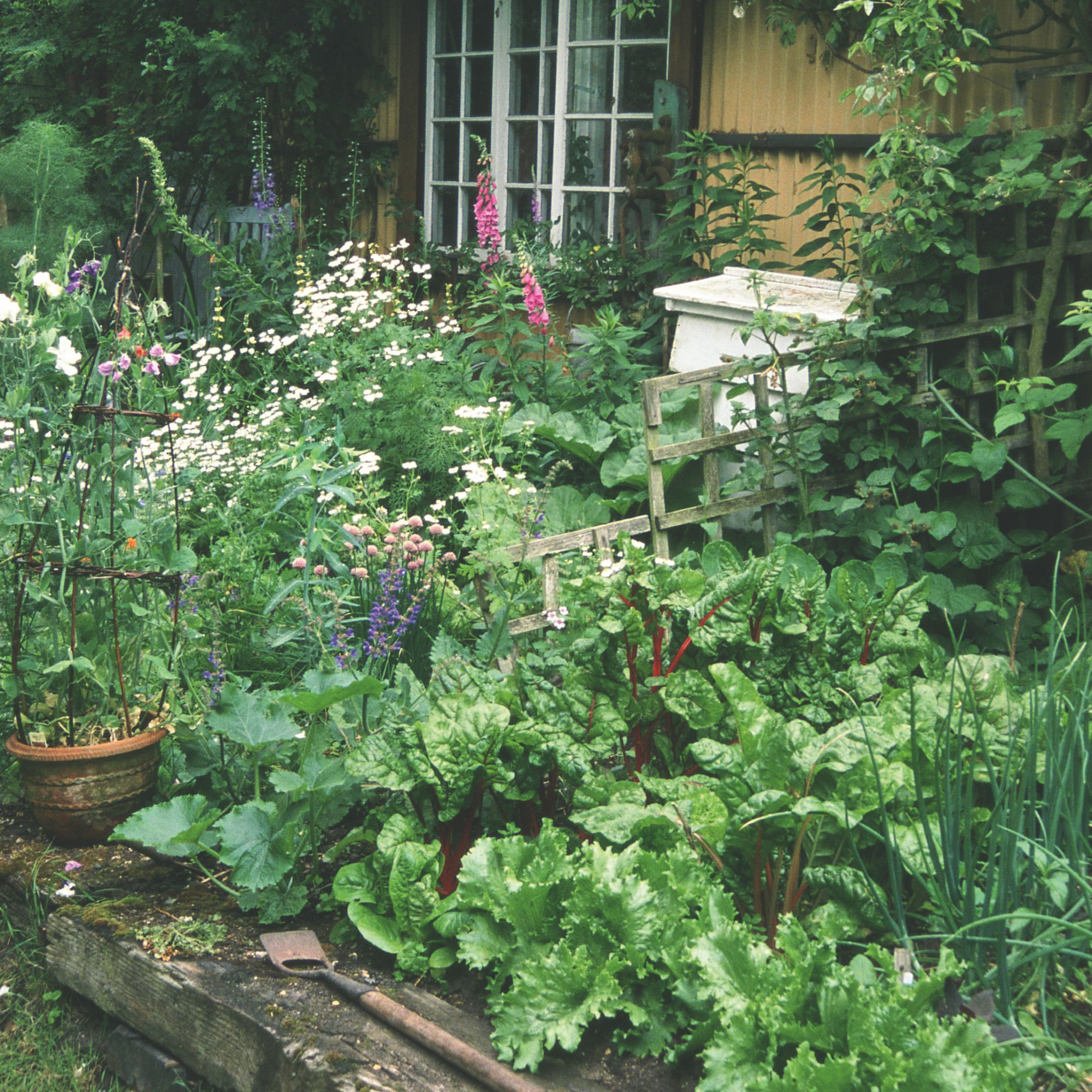
Forest gardening is set to be another popular garden trend in 2025. In a nutshell, forest gardening involves layered, multi-storey planting to mimic a woodland ecosystem. It’s self-sustaining, low-maintenance and usually involves useful and edible plants.
It might have forest in the name, but you don’t have to have a huge garden to experiment with the technique.
‘You can still incorporate the principles of forest gardening into your outdoor area, whether you have a few feet to work with or a sprawling acre,’ says Emma Fell, head of horticulture at Hillier Garden Centres.
‘Opt for compact varieties and simply scale to suit the size of your outdoor area. You can create a ‘mini’ forest garden by opting for a few dwarf varieties of trees for the canopy layer and using smaller species densely positioned beneath.'
If you’re working with patio ideas alone, Emma says you can also achieve a forest garden system using containers — as long as there’s enough space in the pot for the plants to reach maturity.
4. Focus on wildlife
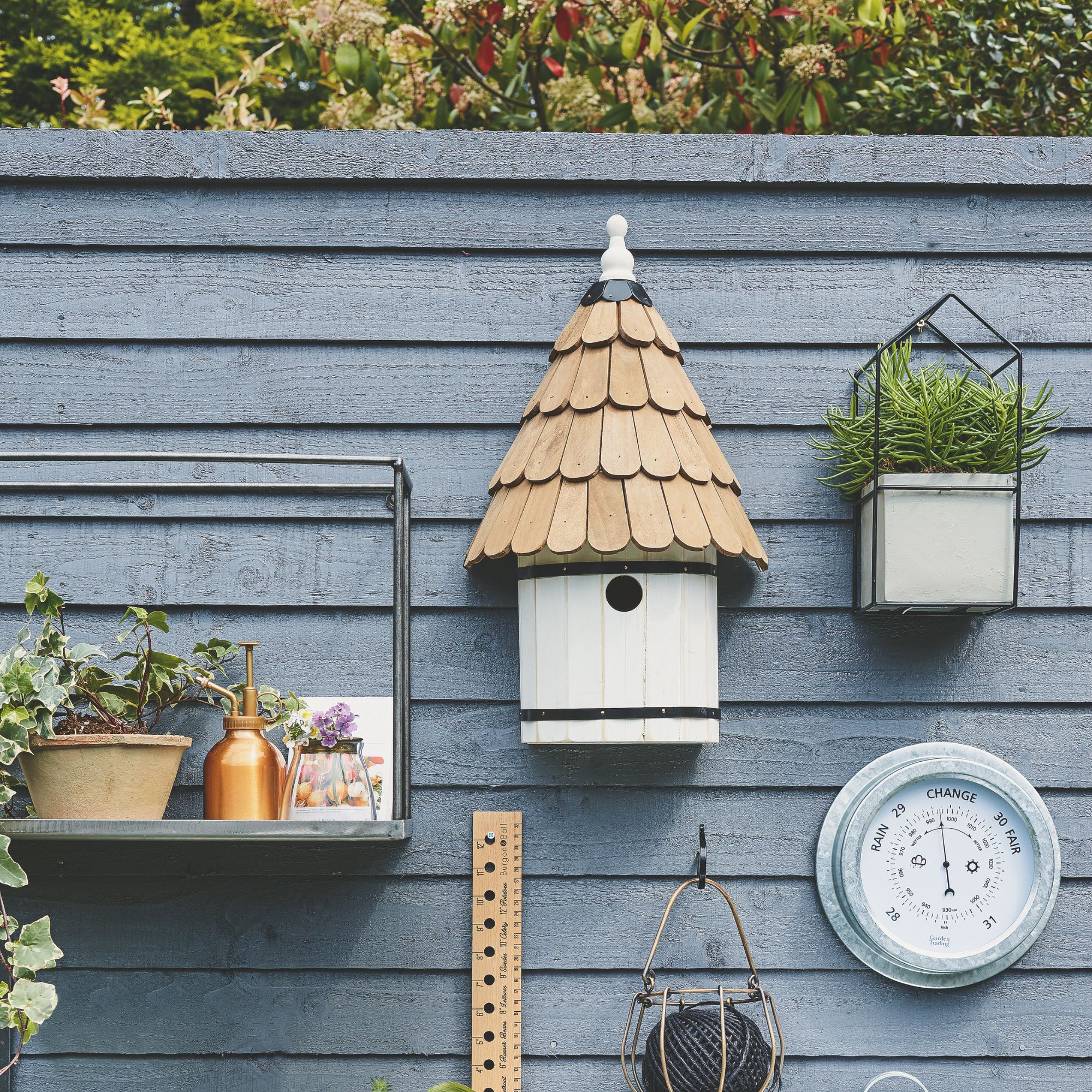
If you're a fan of wildlife garden ideas, you'll be pleased to know that wildlife-friendly spaces are set to be one of the biggest garden trends in 2025.
'Another of the key gardening trends gaining momentum is the focus on creating wildlife-friendly spaces,' says Sam from Pergolux UK. 'More gardeners are incorporating bird feeders, hibernation boxes and ponds to encourage biodiversity and support local ecosystems.'
This could be the year you experiment with garden pond ideas or clean out that bird bath and lend nature a helping hand.
5. Smart gardening
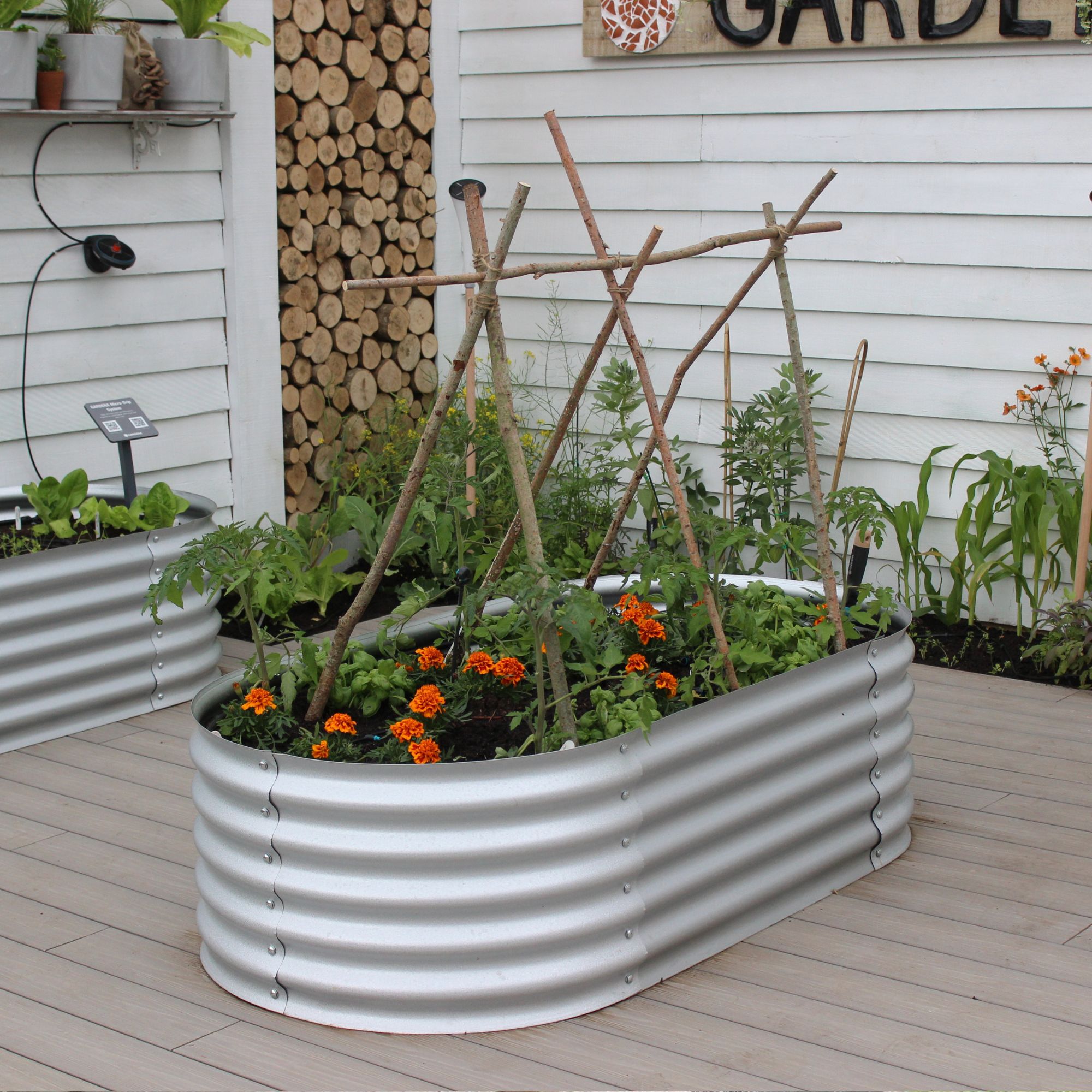
We’ve watched the steady rise of smart gardening over recent years, with everything from smart BBQs to smart watering solutions and robot lawnmowers gaining traction — and garden experts are expecting the trend to continue to soar this year.
‘Robotic lawnmowers, like the Mowbot, are transforming lawn care, making it more efficient, convenient, and accessible,’ says Peter Chaloner, managing director of Cobra Garden Machinery.
‘With these kinds of innovations becoming more affordable for the average consumer, we can expect to see more modern homeowners opt for smart technology in 2025.’
Whether you'll be investing in a robotic lawnmower or a smart watering irrigation system this year, there are plenty of ways to make the most of technology in the garden.
6. Topiary
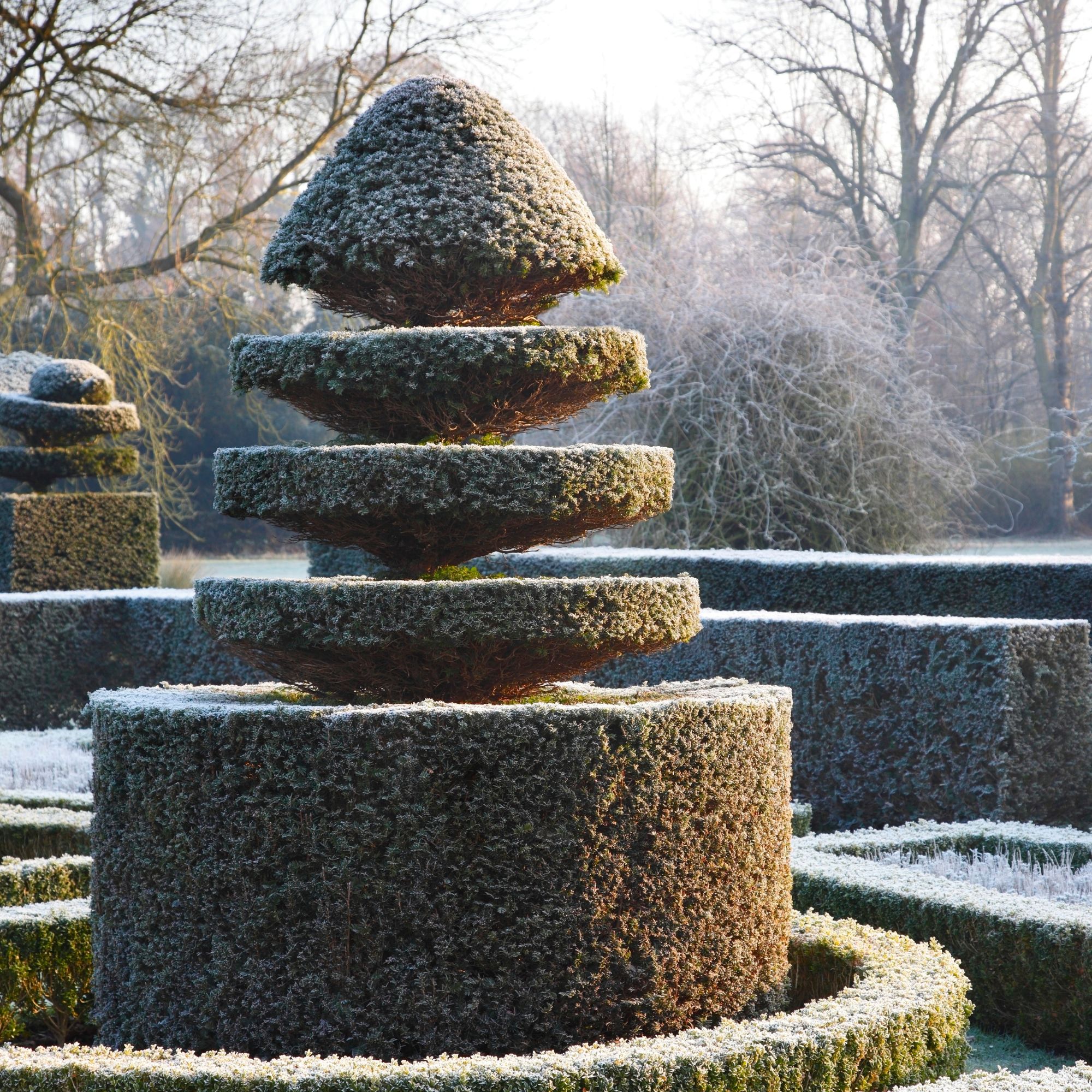
Topiary is also set to be popular this year, so if you've been wondering when to prune your bay tree or evergreen hedge, consider getting creative with the task.
‘If you’re new to topiary, the trick is to start simple and remember to step back!’ says Andy Bourke, professional topiary artist, also known as The Hedge Barber. ‘When it comes to deciding what shape to create, there are countless options, but I always recommend starting with geometric shapes first, such as balls, cubes and pyramids.’
Once you become familiar with the technique, the topiary world is your oyster.
‘When you have mastered the more standard shapes, you can branch out into single or double spirals, tiers with multiple trunks, arches, animals and even letters,' says Andy. 'Practice makes perfect!’
7. Cottagecore
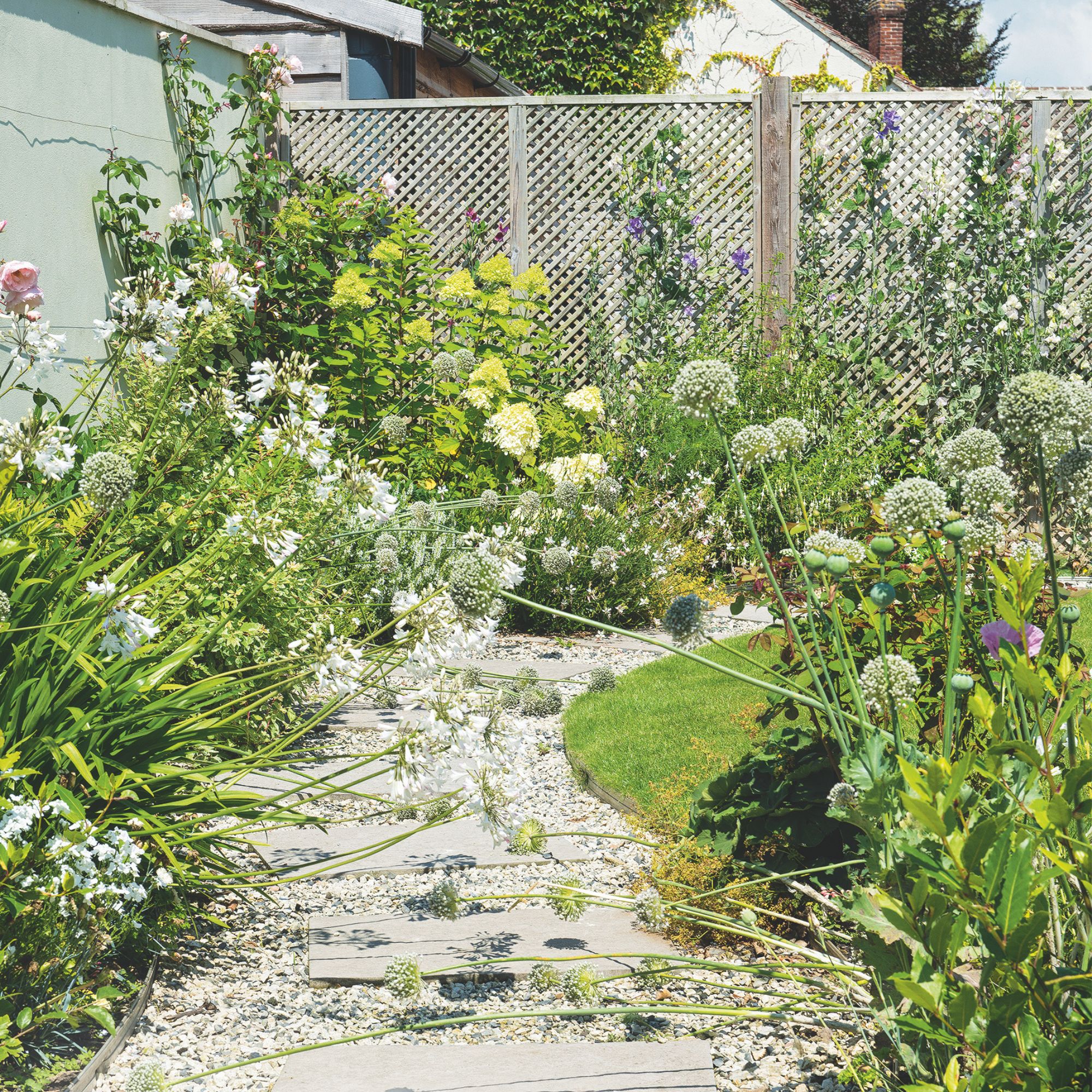
Cottagecore has remained popular inside and outside of the home for years now, but according to search statistics from 2024, the trend is still on an upward trajectory.
Marshalls Plc revealed a 150% year-on-year increase in searches for 'cottagecore garden', highlighting the rising interest in the romantic and practical style.
Cottage garden ideas are all about embracing the wild beauty of nature, combining flowers, herbs and vegetables to create a tapestry of colour and texture.
'The cottagecore trend has gained traction over the past few years with many looking to add cosy country vibes into their homes,' say the landscaping experts at Marshalls Plc. 'There are many ways you can incorporate this aesthetic into your garden. Natural stone walls and pavers can bring a rustic edge to your outdoor space, whilst cobblestones add a traditional charm to patios and paths.'
8. Unusual vegetables
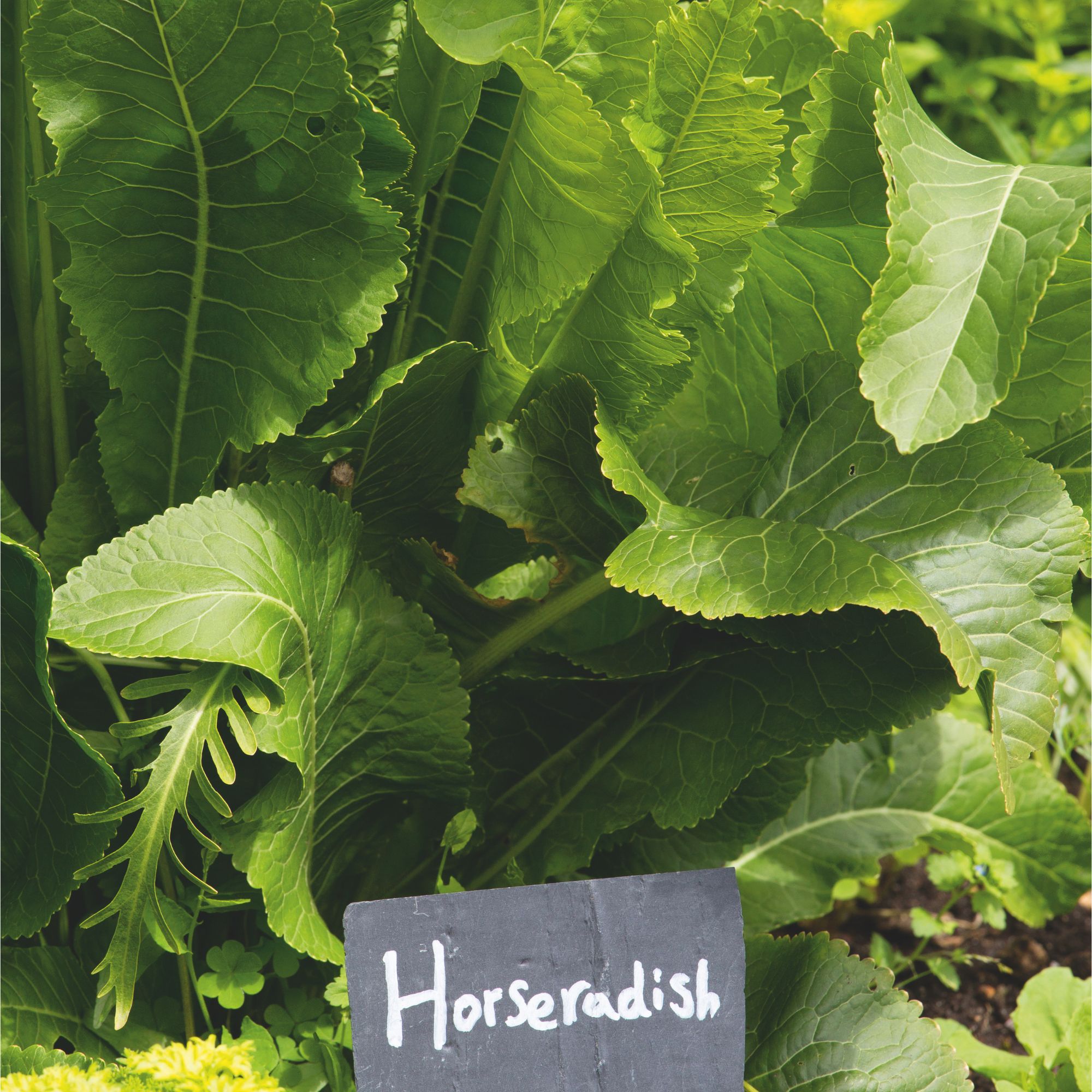
If you're a fan of growing your own vegetables and eager to start learning to grow unusual varieties, 2025 is your year.
'There is likely to be increasing demand for vegetable and herb plants that are outside the typical range, as consumers look to try something a bit more unusual or exotic in their gardens,' says Julian from British Garden Centres.
So, what kind of vegetables are we talking about here?
'Examples include samphire, winter savory, horseradish, artichoke, chickpeas, and okra,' says Julian. 'In 2025, people will be eager to grow new and exciting foods and flavours.'
9. Heirloom seeds
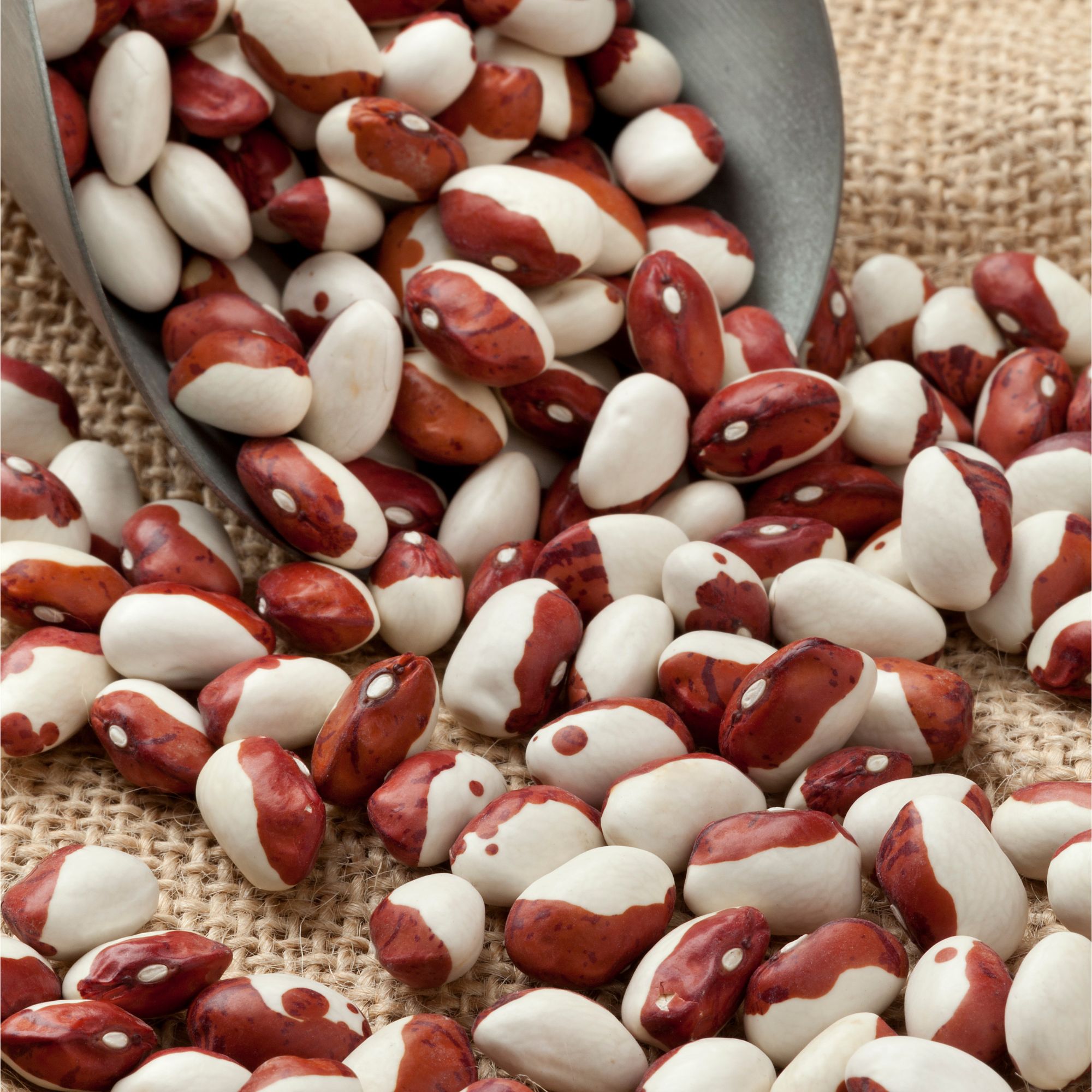
According to seed specialist She Grows Veg, heirloom seeds will be taking centre stage for grow-your-own enthusiasts this year.
Seed suppliers are predicted to bring back heirloom varieties like the 1500-year-old cave bean from extinction, and growers are set to move from hybrid vegetable seeds to heirloom and heritage varieties.
'The trend will see gardeners revert back to more diverse and unique varieties, typically at least 50 years old, with some that can be traced back hundreds or thousands of years,' She Grows Veg explains.
10. Romantic tulip displays
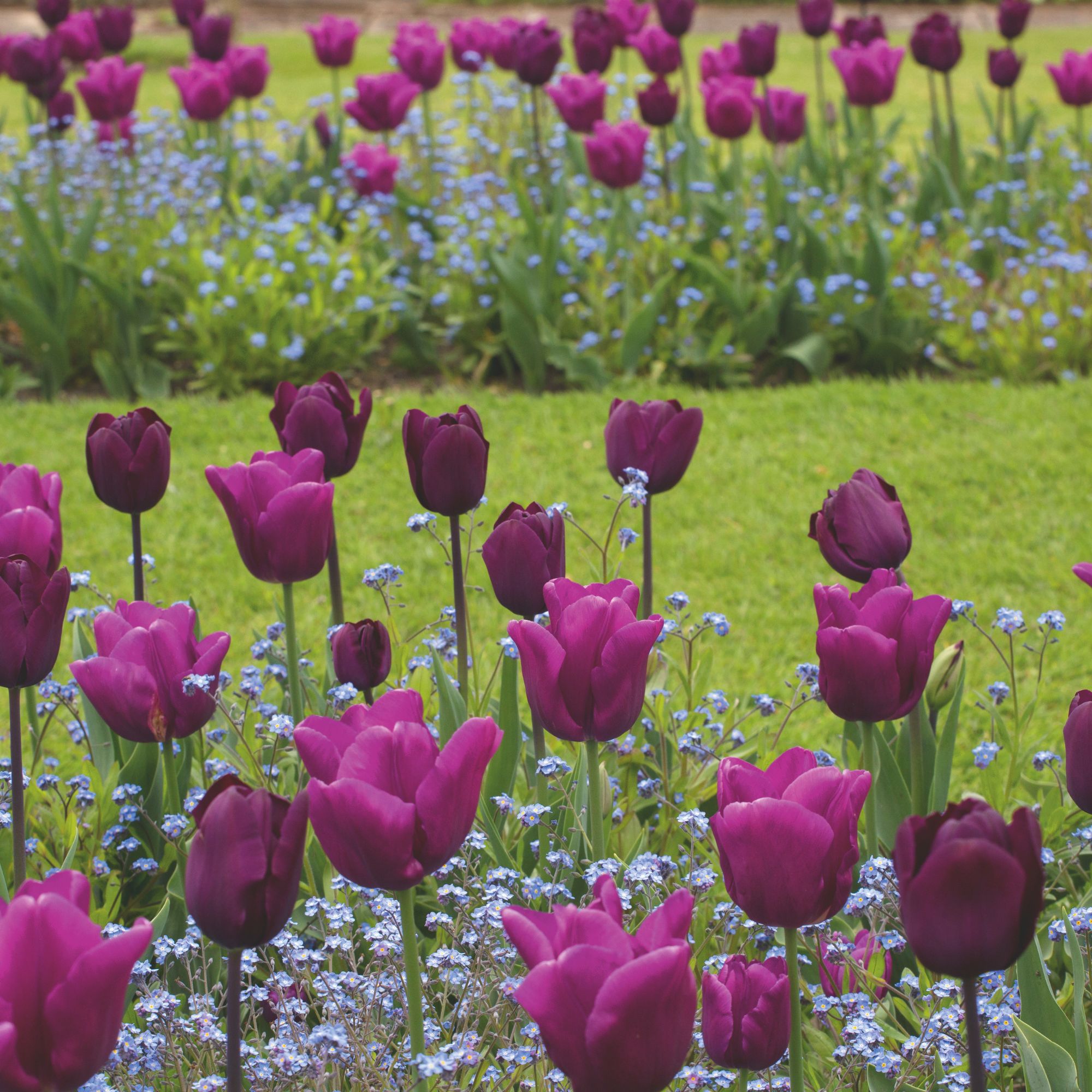
If you went wild for spring bulbs last year, you'll be pleased to know they're set to be big this year, too. Tulips, more specifically.
And not just any tulips — according to Gardeners Dream's prediction, the romantic tulip display trend is set to take off. Burgundies, reds, pinks and creams were popular choices among buyers last year, so expect to see gardens filled with whimsical displays come spring.
11. Statement houseplants
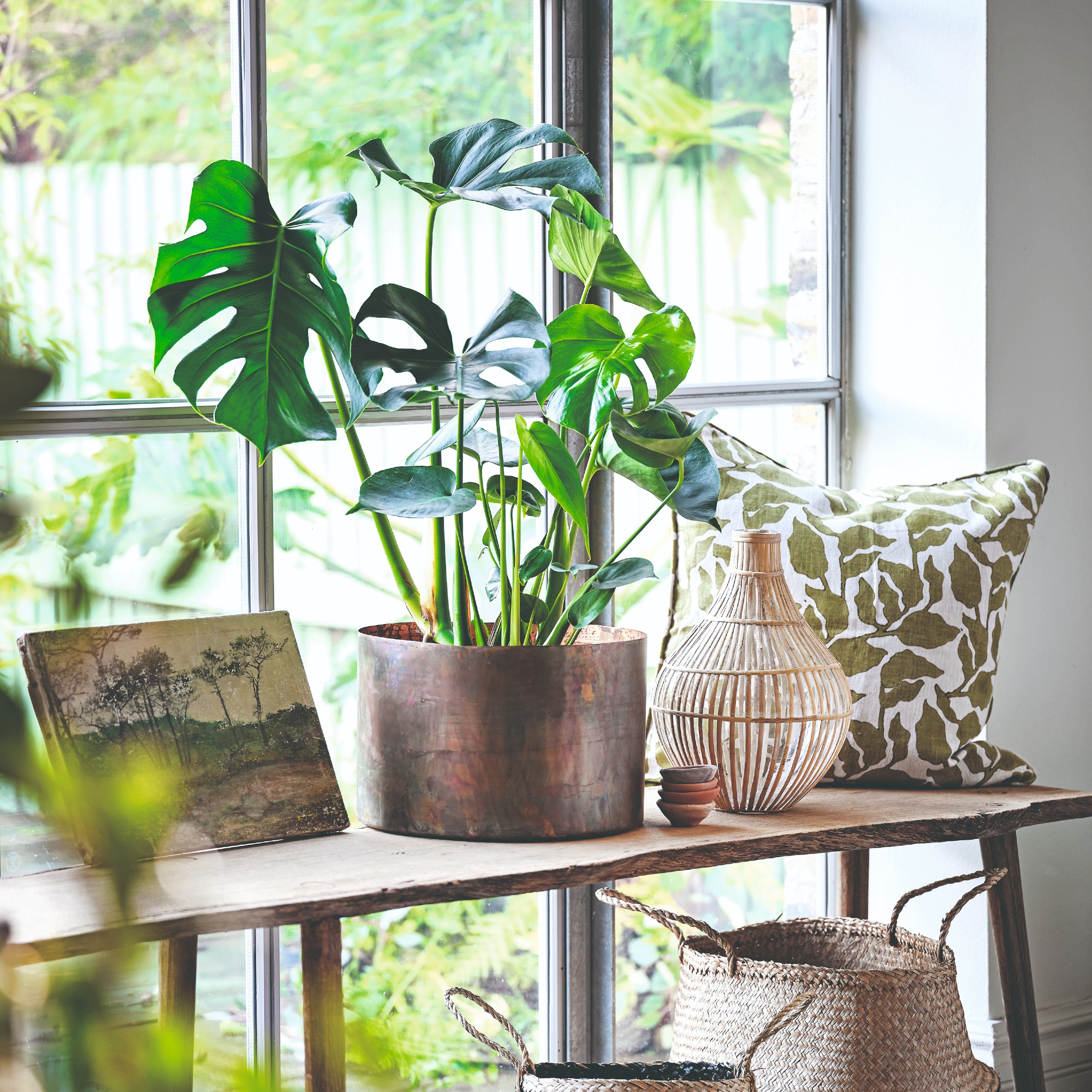
Looking indoors, houseplants are expected to remain popular this year, earning their place on our list of 2025 garden trends. Statement houseplants are expected to play an especially integral role this year.
'We're seeing a real shift towards self-expression in interiors for 2025, with people choosing statement plants as focal points,' explains Jo Lambell, founder of Beards & Daisies.
'Pairing large, architectural greenery like a Monstera deliciosa with richly coloured pots or stands allows you to embrace the trend while adding a personal touch to your home. It’s all about creating spaces that feel unique, vibrant, and uplifting.'
If you're looking for inspiration, Ideal Home's gardens editor, Sophie, recently shared her favourite houseplants.
FAQs
What trend is popular right now with garden design?
If you're thinking about redesigning your garden this year and want to stick to the trends, consider channelling cottagecore with a mixture of herbs, vegetables and flowers. Try to incorporate a range of textures and heights, and don't be afraid to plant densely to achieve that abundant, carefree look.
If a uniform look is more your style, consider experimenting with topiary, which is set to be popular in 2025.
What are the plant trends for 2025?
2025 is all about climate-forward thinking, so native plants, drought-tolerant plants and flood-resilient varieties are all great choices this year. Consider which areas of your garden are prone to waterlogging and which areas receive the most sunlight.
In terms of specific plant trends, British Garden Centres predicts that hydrangeas will be popular this year.
'Hydrangeas have seen a notable increase in popularity this year, driven by improved breeding options and customers' growing appreciation,' says plant expert Julian. 'We expect this trend to continue into 2025, especially as hydrangeas regain fashion appeal.
'The later-flowering Paniculata types have experienced the most significant rise, likely due to a wider variety becoming available and their ability to bloom strongly after many other garden shrubs have completed their displays.'
Which of this year's big garden trends is your favourite?

Sophie joined the Ideal Home team as Gardens Editor in June 2024. After studying English at Royal Holloway, University of London, she began writing for Grow Your Own, which spurred on her love of gardening. She's tried growing almost every vegetable under the sun, and has a soft spot for roses and dinnerplate dahlias.
As Gardens Editor, Sophie's always on the lookout for the latest garden trend. She loves sharing growing hacks for every space, from herbaceous borders to balconies.
- Kayleigh DrayActing Content Editor
- Jayne DowleContributor
